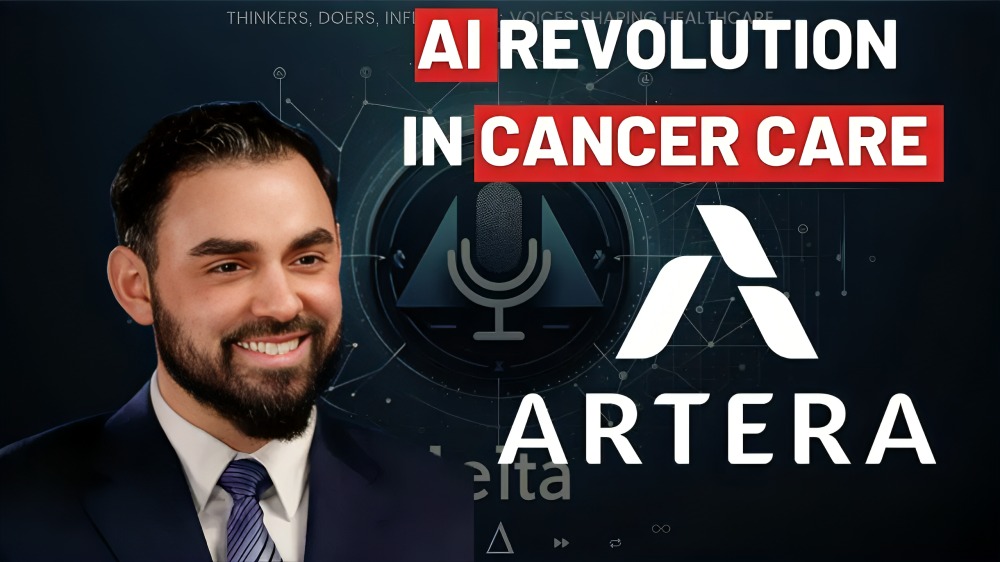Roupen Odabashian, Internal Medicine Physician and Hematology/Oncology Fellow at Karmanos Cancer Institute, shared on LinkedIn:
“Missed our interview with Dr. Andre Esteva?
No worries! This article breaks down the groundbreaking advancements happening at ArteraAI and their profound impact on prostate cancer treatment.
What makes ArteraAI stand out? Their cutting-edge AI-powered solutions are not just innovative – they are recognized in the NCCN guidelines and have become an integral part of standard cancer treatment protocols.
Read the full article to learn how AI is transforming oncology and improving patient outcomes.
From Vision to Validation: Building a HealthTech Company That Transforms Prostate Cancer Care
In the dynamic world of MedTech and health tech startups, innovation often meets significant challenges. From navigating workflow integration to securing insurance reimbursement, the path to success requires vision, resilience, and a strategic approach. Andre Esteva, PhD, co-founder and CEO of ArteraAI , has achieved remarkable success by leveraging artificial intelligence (AI) to revolutionize cancer care. Here are key insights from his journey that can guide healthcare entrepreneurs in their own ventures.
The Importance of Vision and Values in MedTech Startups
A MedTech startup’s success begins with a clear vision supported by strong values. At ArteraAI , the team’s guiding principles include patient success, impact, perseverance, team synergy, and efficiency. These values not only reflect the company’s mission but also serve as decision-making anchors.
Dr. Esteva emphasizes the importance of making the company feel like an extension of its founders. This involves defining core values based on past professional success and aligning them with the product, market, and organizational culture. For startups, embedding such principles early can foster trust and consistency across teams, even as the company scales.
Workflow Integration: The Key to Clinical Adoption
One of the biggest hurdles in health tech is integrating new tools into clinical workflows. Dr. Esteva’s early experiences taught him that even groundbreaking technology fails if it’s not seamlessly incorporated into a physician’s routine. For ArteraAI, the focus was on developing an AI tool that’s easy for clinicians to use and directly addresses their pain points.
Healthcare entrepreneurs should prioritize feedback from end users, ensuring their products are not just innovative but also practical. This user-first approach accelerates adoption and maximizes impact in clinical settings.
Securing Reimbursement: Proving Value Through Outcomes
Another critical element for health tech startups is finding a sustainable business model. Dr. Esteva’s first startup struggled because it lacked a clear reimbursement strategy. With Artera, the team ensured their AI tools were validated through rigorous clinical trials and demonstrated measurable improvements in patient outcomes. This evidence-based approach made it easier to secure reimbursement from insurers.
Entrepreneurs must align their product’s value proposition with payer priorities, such as cost savings, improved patient outcomes, or enhanced efficiency. This alignment is essential for achieving financial sustainability in the competitive MedTech landscape.
Lessons from a Serial Entrepreneur
Dr. Esteva’s experience underscores the value of learning from past ventures. Before founding ArteraAI , he co-developed an app for diagnosing skin conditions. While the app demonstrated technical excellence, it lacked a viable business model and workflow integration. These lessons shaped his approach to Artera, where he prioritized clinician trust, seamless integration, and payer alignment.
Startups can save time and resources by conducting thorough market research early. Engaging stakeholders – clinicians, payers, and patients – during product development ensures alignment with real-world needs and market conditions.
Key Takeaways for Healthcare Entrepreneurs
1. Start with Values: Define your startup’s core values early, and ensure they resonate with your mission, product, and team culture.
2. Focus on Workflow Integration: Develop tools that integrate seamlessly into clinical routines, reducing friction for end users.
3. Prove Your Value: Validate your product with robust clinical evidence, demonstrating its impact on patient outcomes and cost efficiency.
4. Learn from Failure: Use insights from past ventures to refine your approach and avoid repeating mistakes.
5. Engage Stakeholders Early: Involve clinicians, payers, and patients during development to ensure your product meets their needs.
Listen To The Podcast On Spotify.
Listen To The Podcast on Apple,
Watch the podcast on YouTube.”


